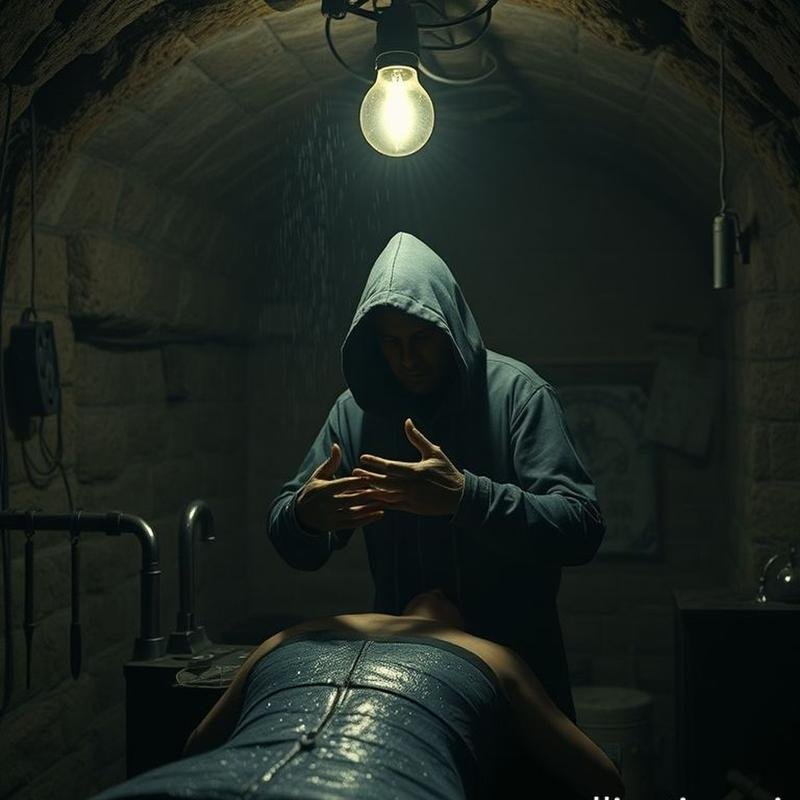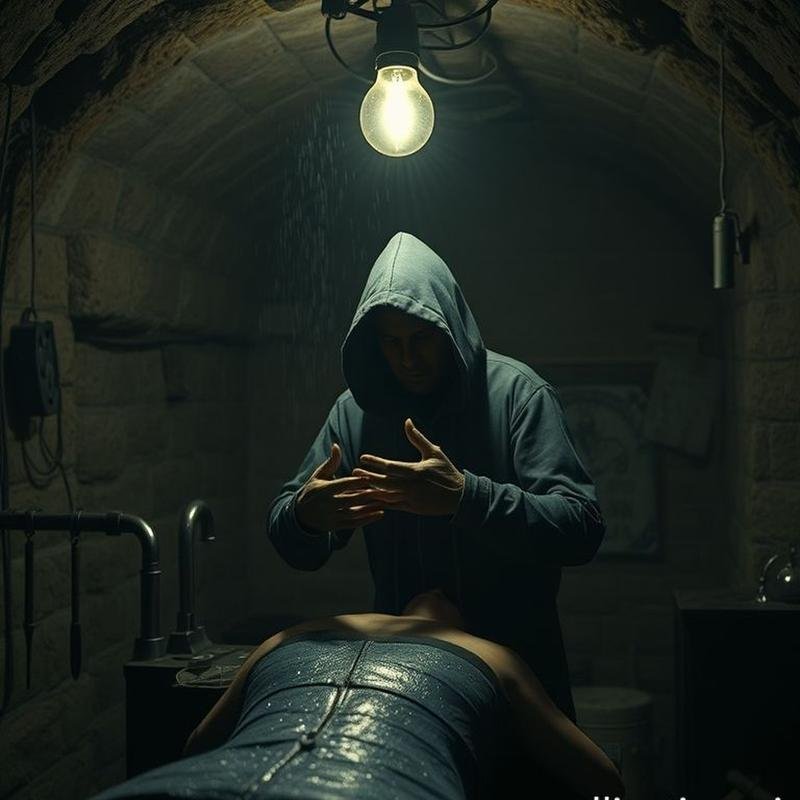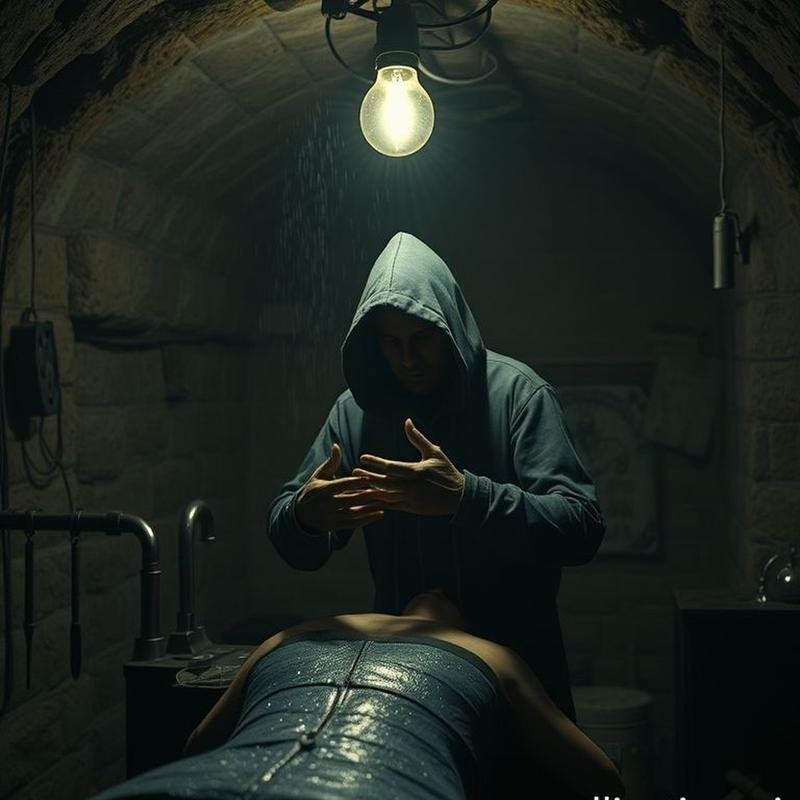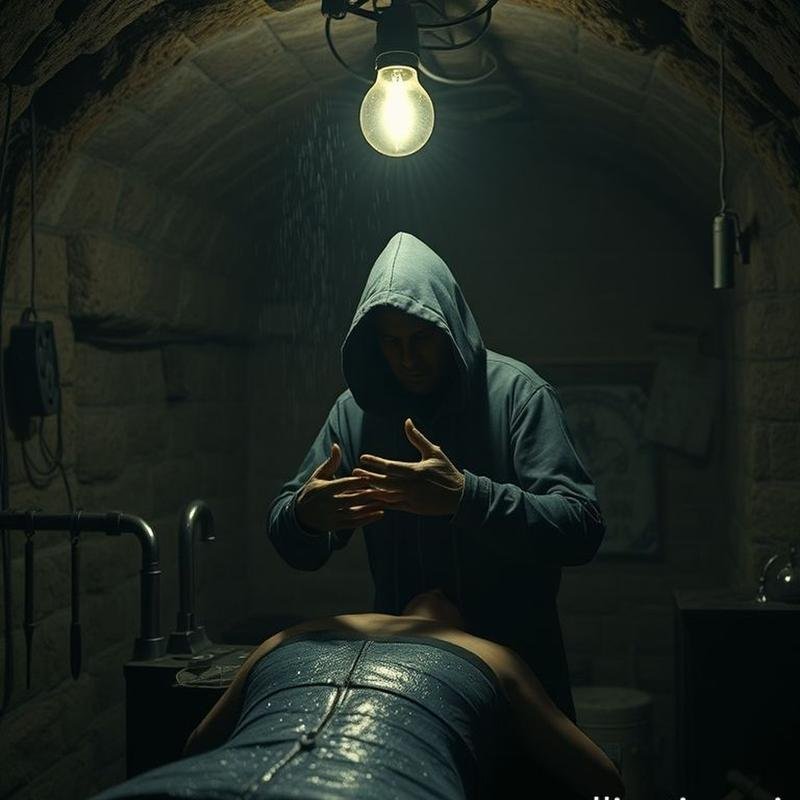Lavrentiy Beria: Stalin’s Monster 🤯 or Victim? The Enigmatic Story of the Soviet Intelligence Chief.

Lavrentiy Beria: Stalin’s Enforcer or Victim?
Was Lavrentiy Beria a monster or a victim? The man who terrorized millions, and who even Stalin himself was said to fear… But is that the complete picture? This episode delves into the depths of Soviet history to unravel the complex web of deceit and deception surrounding one of the 20th century’s most controversial figures, and to examine the extent to which political machinations distorted his true image.
Before we begin analyzing these complex facts, we invite you to share your perspective: was Beria a victim or an executioner? To ensure you don’t miss any crucial details in this historical analysis, subscribe to our documentary channel.
Early Life and Rise to Power
Lavrentiy Pavlovich Beria was born in 1899 in the impoverished Georgian village of Merkheuli. His birth offered no premonition of the dark future that awaited him, but unbridled ambition soon consumed the peasant boy.
At the Baku Polytechnic Institute, Beria pursued knowledge, finding his ideological alignment with the Bolshevik Party. March 1917 marked a pivotal moment, not merely joining a party, but pledging allegiance to a machine of oppression that would later engulf millions.
From this point, his terrifying ascent began. In 1921, Beria was integrated into the Cheka, the notorious Soviet security apparatus. Georgia served as his initial proving ground, where he ruthlessly suppressed anti-revolutionary movements. This was not simply a job, but a rigorous training in the art of terror, honing his skills in torture and manipulation.
By 1931, Beria had risen to become the de facto ruler of Georgia, heading the NKVD. Repressions and ethnic cleansing were not merely directives, but an expression of his unwavering loyalty. In 1935, he was appointed Secretary of the Communist Party Committee in Transcaucasia, a position of regional power commensurate with his burgeoning ambition.
Then came the fateful summons to Moscow in 1938, to serve as Deputy Head of the NKVD under Nikolai Yezhov. However, Beria was not one to remain subordinate for long. The end was near for Yezhov, and the beginning of Beria’s reign, a reign of terror that would indelibly stain his name, synonymous with absolute horror.
The Architect of Terror
He was not only the head of the infamous NKVD, but a brilliant architect of terror, constructing edifices of fear. During his dark tenure, the forced labor camps, the Gulags, swelled with vast numbers of people, reaching a horrifying peak of 2.5 million prisoners in the early 1950s. The Gulags were not merely prisons, but human slaughterhouses, factories of death where mortality rates soared due to relentless hard labor, systematic malnutrition, and indescribably inhumane conditions. Impossible work quotas, systematic brutal torture, and arbitrary executions were an integral part of daily life, a bitter and inescapable reality.
His terror extended beyond the confines of the Gulags. Beria brutally oversaw the mass deportation of entire ethnic groups, such as the Crimean Tatars and Chechens, to harsh, desolate regions in Central Asia and frozen Siberia. These operations were characterized by unimaginable brutality, with deportees left to perish in the harsh open, without food or shelter, victims of relentless cruelty. Beria bears direct responsibility for the horrific Katyn massacre, a heinous war crime that claimed the lives of 22,000 Polish officers and soldiers, a guilt that would forever haunt him. He established the infamous Special Bureau within the NKVD, a tool for espionage and sabotage within the Red Army itself, leading to widespread purges that weakened the military establishment, leaving a legacy of chaos and vulnerability.
The Atomic Bomb Project
During the hellish period of the Great Purge, an unexpected mission emerged, presenting a stark paradox. In 1945, while the evidence of his atrocities was still palpable, Lavrentiy Beria was placed in charge of the Soviet atomic bomb program, following previous setbacks. The man who oversaw terror and destruction was now tasked with protecting the nation from a similar nuclear threat, a threat that loomed large.
Through a vast and well-organized espionage network, Beria successfully obtained vital and detailed information from the American Manhattan Project, significantly accelerating the Soviet program. Under his direct and relentless supervision, the first Soviet nuclear reactor was constructed in 1946, culminating in the first successful nuclear test in 1949, known as RDS-1.
However, this resounding success came at a significant cost, a cost that cannot be ignored. Beria employed a harsh system of incentives and penalties, readily utilizing forced labor camps (the Gulags) to ensure projects were completed on time, regardless of the human toll. Even some prominent Soviet scientists, such as Andrei Sakharov, reluctantly acknowledged that Beria was essential to the program’s success, despite his brutal and inhumane methods. Can this extreme brutality be justified by the perceived inevitability of the frenzied nuclear arms race?
The Doctors’ Plot and Stalin’s Death
But did Beria’s story conclude there? No, in 1952, another issue emerged, further complicating the political landscape: the Doctors’ Plot. A group of prominent Jewish doctors in Moscow were accused of conspiring to assassinate senior Soviet leaders.
On January 13, 1953, the Pravda newspaper published the shocking news, igniting a wave of anti-Semitism unprecedented in the Soviet Union. Beria, as head of security, took the lead in the investigation. Torture and coercion became his tools, and confessions were forcibly extracted.
However, after Stalin’s sudden death in March 1953, Beria surprisingly ordered the case to be reopened. The doctors were acquitted and released in April, and suspicions began to arise. Was Beria involved in fabricating this heinous plot? Did he strategically use it to undermine his political rivals, or even Stalin himself?
Following the doctors’ acquittal, the officials responsible for the original investigation were arrested and accused of fabricating the case under Beria’s direct supervision. Was this a desperate attempt to conceal his true role? Or was he genuinely seeking to rectify a grave injustice? The Doctors’ Plot instilled deep fear and anxiety among the Jewish population, who feared a widespread crackdown. What was Beria’s actual role in this affair?
Power Plays and Downfall
“I am Beria, and I solve problems.” These words may seem to reflect an arrogance of power, but they also embody an undeniable truth. In 1938, Beria assumed leadership of the NKVD, succeeding an era marked by unspeakable brutality. Did Stalin genuinely fear Beria? Or did he desperately need him as an instrument capable of restoring order after years of horrific purges?
The truth, as always, is more nuanced. Beria, despite his seemingly unwavering loyalty, was secretly collecting sensitive information about Stalin himself, perhaps as a form of personal insurance. And after Stalin’s mysterious death, Beria surprisingly attempted to seize power through a series of bold liberal reforms: pardoning political prisoners and significantly curtailing the powers of the dreaded NKVD. This audacious move, despite its reformist appearance, incensed his fellow conspirators in the Politburo, led by Nikita Khrushchev.
But the question remains: did Stalin truly fear him? Some historical accounts suggest that Stalin, while relying heavily on Beria to maintain his iron grip on the regime, was also perpetually wary of his unbridled ambitions and immense capabilities. Was Beria merely a pliable tool in Stalin’s hands, simply executing his orders?
With Stalin’s death, not only did the era of terror end, but the stage was set for a bitter power struggle. Beria, the long arm of the deceased dictator, found himself facing a formidable alliance between Malenkov and Khrushchev. His reforms, which appeared to herald a new dawn, were in reality a time bomb threatening everyone.
Was Beria a genuine reformer, or simply an opportunist exploiting the chaos to consolidate his influence? His bold initiatives, such as the amnesty for political prisoners, angered his hardline comrades. Khrushchev, perceiving Beria as a threat to his ambitions, began to weave a complex web of conspiracy.
At a surprise cabinet meeting on June 26, the situation dramatically shifted. Marshal Zhukov, supported by army officers, stormed the meeting and arrested Beria on charges of high treason and conspiracy to overthrow the Soviet regime. Accusations that remain questionable to this day, and which many view as nothing more than a political settling of scores.
Following a secret trial, Beria was executed on December 23 of the same year, and erased from historical memory as if he had never existed. Khrushchev, who played the most prominent role in his downfall, consolidated his power, ushering in a new chapter of covert conflicts within the corridors of the Kremlin. Was Beria a victim of his own unchecked ambition, or simply a scapegoat in a ruthless power play?
The Paradox of Reform
With the curtain falling on the Stalin era, dramatic developments began to unfold. Suddenly, Beria, the infamous architect of terror, appears in the guise of a reformer. What kind of awakening of conscience is this? Or is it merely cold political calculation? In March 1953, Beria abolished the notorious special tribunals of the Ministry of Interior, which had long issued death sentences arbitrarily, without any accountability.
And just days later, a sweeping amnesty followed, opening the prison doors to more than 1.2 million prisoners, most of whom had been incarcerated for minor or economic offenses. Is this a glimmer of hope in the darkness? Perhaps, but this amnesty did not extend to prisoners of conscience or those accused of serious political crimes.
Beria was not content with this, but strived to undermine the cult of personality of Stalin, demanding a careful review of the Doctors’ Plot, that anti-
Video Analysis








